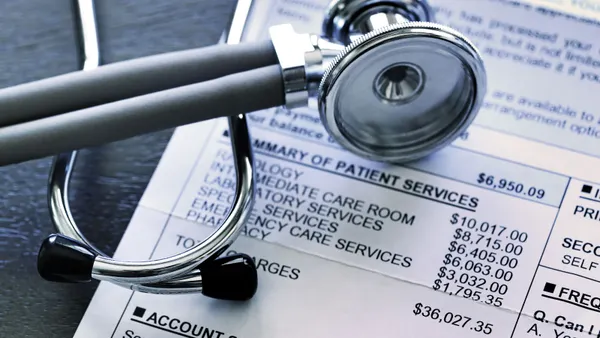President Joe Biden will formally release a $2-trillion infrastructure plan Wednesday afternoon as a two-part legislative initiative.
The White House is framing the proposal under the title of “The American Jobs Plan” and is presenting it as the most significant domestic investment since President Dwight Eisenhower’s interstate highway system in the 1950s and President John F. Kennedy’s space program in the 1960s.
The plan is being divided into a two-pronged approach following concerns from both Democrats and Republican on how the measure will be financed.
Infrastructure Projects On Tap: The first legislative offering defines “infrastructure” as covering both property and people. Among the initiatives included in this proposal are:
- $621 billion for upgrading and expanding physical infrastructure including roads, bridges, railways, and public transit systems
- $400 billion for projects dubbed “care infrastructure” designed to expand access to home or community care for people with aging relatives and individuals with disabilities
- $213 billion for addressing problems facing underserved communities by upgrading and constructing schools, VA hospitals, and other public sector facilities, with an emphasis on using unionized trade workers on these projects
- $180 billion for research and development in technology and climate science, including incentives for the domestic production of semiconductors, batteries, and clean energy technologies
- $174 billion for expanding access to electric vehicles, which include the construction of 500,000 electric vehicle stations, the electrifying of bus fleets, and tax incentives and rebates to make electric vehicles more affordable
- $111 billion to replace lead pipes and service lines across the nation and upgrade drinking water, wastewater, and stormwater systems
- $100 billion for workforce development in low-income and underserved communities
- $100 billion for expanding broadband internet access nationwide
- $100 billion for updating the nation’s electric grid
Who Pays For This? The second aspect of the Biden proposal is titled “The Made in America Tax Plan,” which will overhaul portions of the U.S. tax code related to businesses and high-income individuals.
One of the main priorities in this aspect of the plan is raising the corporate tax rate to 28% from 21%, a partial reversal of President Donald Trump’s 2017 tax reform initiative, which lowered the rate to 21% from 35%.
The plan is also expected to impose a global minimum tax on profits from foreign organizations, increase capital gains taxes for affluent Americans, and reimpose the pre-Trump individual rate of 39.6% for individuals earning more than $400,000 per year.
“Policymakers should avoid creating new barriers to job creation and economic growth, particularly during the recovery.”
— The Business Roundtable
Furthermore, the updates to the tax code will be designed to discourage U.S. firms from listing overseas tax havens as their corporate address and from writing off expenses related to offshoring.
[The White House hopes to raise more than $1 trillion total through the corporate and global minimum tax increases.—Editor’s note]
Absent from the tax plan is a potential gas tax hike and the so-called “wealth tax” advocated by progressive legislators including Sen. Elizabeth Warren, Massachusetts Democrat.
Will The Plan Become Law? The Biden proposals come on the heels of a $1.9-trillion legislative package designed to address the economic trauma created by the COVID-19 pandemic. That legislation passed through Congress with no Republican support.
Although infrastructure programs are traditionally viewed as a common ground issue for the rival parties, Republican legislators are already balking at both the price tag and some of the projects being presented.
Senate Democrats are floating the possibility of having the proposal pass through reconciliation, a budget process that enables certain bills to succeed by a simple majority rather than a 60-vote minimum.
The Business Roundtable, a trade association whose members are chief executive officers of major U.S. companies, is the first major private sector entity to come out against the potential changes to the tax code.
“[The] Business Roundtable strongly opposes corporate tax increases as a pay-for for infrastructure investment,” said Joshua Bolten, CEO of The Business Roundtable, a trade association whose members are chief executive officers of major U.S. companies. “Policymakers should avoid creating new barriers to job creation and economic growth, particularly during the recovery.”
“To the extent that infrastructure investment,” Bolten added, “given its unique economic benefits and the need for a rapid recovery from COVID-19, is deficit-funded in the short term, Congress should set a course for steady, reliable funding for infrastructure over the long term.”
This story originally appeared on Benzinga. © 2021 Benzinga.com.
Benzinga does not provide investment advice. All rights reserved.













